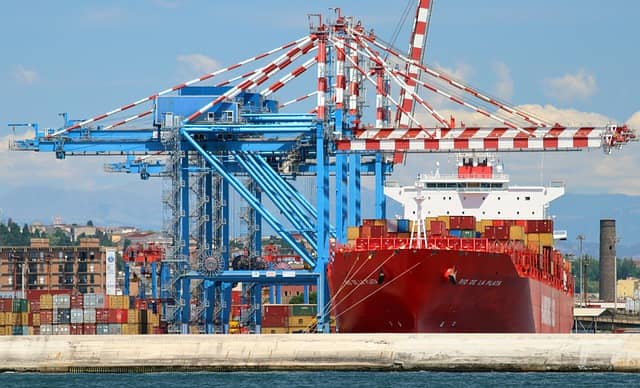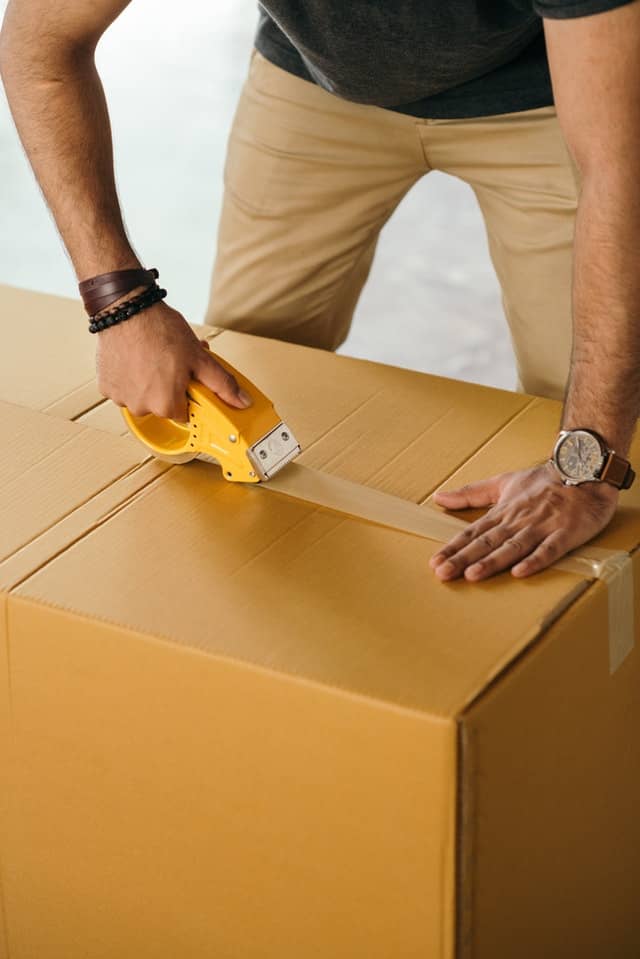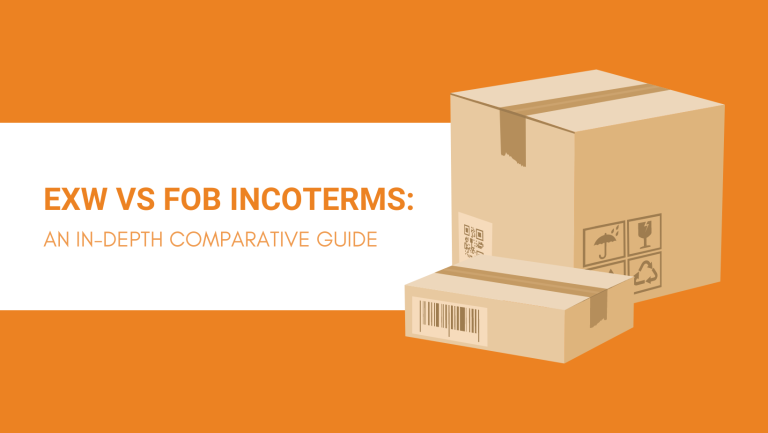In any shipping arrangement, most buyers aim for shipping terms that will work to their advantage or is within their capabilities. Shipping terms like EXW and FOB are thus popular because they only assign minimal responsibilities and costs to sellers.
Admittedly, this does not mean that EXW or FOB Incoterms work against buyers. Rather, it shows that, as a buyer, it is wise to evaluate such shipping terms when they are offered to you and decide whether they are also convenient for you.
Are you having a hard time choosing between EXW vs FOB shipping terms? Read on as we compare their provisions, pros, and cons and share recommendations on when it would be ideal to use each of them.
EXW and FOB Shipping Terms Definitions

EXW is a logistics abbreviation that stands for Ex Works. It is a shipping term that only requires a seller to prepare the goods that a buyer has ordered and make them available for collection. The point of collection is usually the seller’s factory or warehouse.
FOB, in comparison, stands for Free On Board. Its rules oblige a seller to prepare the goods and handle all the relevant shipping responsibilities until the goods are loaded onto a shipping vessel at a port agreed upon with the seller.
These are, however, only basic definitions. So, let us take a more in-depth look at each of these Incoterms has to offer.
Ex Works (EXW)
Among all the 11 shipping Incoterms, Ex Works favors sellers the most. This is because it assigns all shipping costs and responsibilities to the buyer. The responsibilities under EXW rules are outlined as follows:
The Seller’s Responsibilities

- Prepare the goods ordered by the buyer
- Pack the goods appropriately for export or as instructed by the buyer
- Ensure that the goods are available for collection at the warehouse/depot/factory agreed upon with the seller
- Notify the seller that the goods are ready for collection
The risk of the goods transfers from the seller to the buyer once the seller informs the buyer that the goods are ready for collection.
However, in some purchase agreements, it can be stated that risk will transfer to the buyer once the grace period given for collection lapses.
The Buyer’s Responsibilities
- Arrange and pay for the loading and transportation of the goods from the seller’s premises to the export carrier or any other preferred location
- Clear the goods for export
- Pay export duties and any terminal handling fees that arise
- Pay the export shipping fees and shipping insurance(optional)
- Claim shipping documents from the export carrier
- Track the shipment
The responsibilities listed above all happen in the country of origin. The second leg of responsibilities happen in the buyer’s destination country as follows:
- Clear the goods through customs when they arrive
- Pay import duties and unloading fees
- Arrange and pay for the goods to be loaded onto a local carrier for last-mile delivery
- Pay the loading and last-mile delivery fees
Advantages and Disadvantages of Ex-Works Shipping Terms

Advantages to the Buyer:
- The buyer can choose an export carrier and insurance provider that they find reliable.
- Handling all the export logistics gives the buyer a chance to negotiate rates that are within their budget.
- The prices of goods sold under EXW Incoterms are cheaper compared to other Incoterms because the seller will not need to recoup any shipping costs through pricing.
- EXW terms can be used for any mode of transport.
Advantages to the seller:
- EXW terms assign minimal risk to the seller.
- Under EXW Incoterms, a seller does not have to invest any of their time, manpower, or other resources towards delivery logistics.
Disadvantages to the buyer:
- EXW shipping can be very difficult if a buyer is not conversant with export policies in the country of origin or is still learning the ropes of import-export trade.
- Negotiating with export carriers and insurance providers without any prior relationship is not always easy and can even cost more than if the seller had done it.
- EXW terms assign all risks to the buyer, unlike other Incoterms that share the risks between buyers and sellers.
Disadvantages to the seller:
- Most buyers may prefer sellers that offer more helpful shipping terms.
When Should You Use EXW Incoterms?
EXW shipping could be ideal if you are:
- Sourcing goods from multiple suppliers- EXW terms allow you to collect and consolidate goods from multiple suppliers and ship them together. It is more convenient and cost-effective than shipping separate packages.
- Dropshipping- if you are dropshipping through a dropshipping agent, EXW terms are ideal because your agent can collect and warehouse the goods on your behalf. They can then fulfill orders once you share them.
- Planning to seek post-manufacturing services– if you plan to brand or add value to the goods you have bought, EXW terms are more ideal than shipping terms like FOB where a seller is obliged to deliver the goods straight to the shipping vessel.
Free On Board

Free On Board Incoterms can only be used for water transport. Their core rule is that the seller has to ensure that the goods are loaded onto the shipping vessel.
Consequently, the buyer and seller usually have to agree on a port where the goods are to be delivered. This is why FOB is often indicated alongside a destination. Your purchase agreement could, for example, read ‘FOB Capetown’.
However, there are many more responsibilities allocated to both buyers and sellers under FOB shipping terms. They are outlined as follows:
The Seller’s Responsibilities
- Prepare the goods ordered by the buyer
- Pack the goods in a manner that is safe and suitable for water transport or as instructed by the buyer
- Organize and pay for the goods to be loaded onto a local carrier
- Organize and pay for the transportation of the goods to the nominated port
- Clear the goods for export
- Pay export duties and terminal handling fees
- Consult with the export carrier and pay for the loading of the goods onto the shipping vessel
- Obtain the relevant export documents and share them with the buyer
The risk of the goods transfers from the seller to the buyer once the goods are aboard the ship. On some purchase contracts, this can also be stated as ‘when the goods cross the railing of the ship’.
The Buyer’s Responsibilities

Before any of the shipping processes begin, the buyer should have found and contracted an export carrier. It is also recommended that the buyer takes up shipping insurance to cover the goods while they are in transit.
- Track the shipment
- Clear the goods through customs when they arrive at the port
- Pay import duties, unloading fees, and any other terminal handling fees that may arise
- Arrange and pay for the loading and transportation of the goods to a warehouse or premises of their choosing
Incoterms 2020 recommend that the buyer instructs their export carrier to share the relevant shipping documents with the seller once the goods are loaded onto the ship.
This amendment was introduced to solve a long-standing problem where export carriers were reluctant to share shipping documents with sellers. Such reluctance often made it impossible for sellers to prove that they delivered the goods or claim payment.
Advantages and Disadvantages of FOB Shipping Terms
Advantages to the buyer:
- The seller handles all export processes which makes everything easier for a buyer that may not be familiar with them.
- The buyer still gets to choose the export carrier and insurance provider to ship their goods
- The buyer can select and negotiate export shipping rates to suit their budget
- Having the seller load the goods onto the ship exposes the buyer to fewer risks compared to shipping terms like FAS or FCA
Advantages to the seller:
- All the responsibilities assigned to the seller occur in the country of origin where they are more likely to be familiar with export procedures
- The seller’s responsibilities under FOB are limited to clearing the goods for export and loading them on the vessel. They do not cost too much or require too much logistical effort.
Disadvantages to the buyer:
- It is not always easy to find and negotiate with export carriers and insurance providers. More so if you are not very experienced in shipping matters.
- FOB shipping terms are only limited to water transport. You would have to negotiate different shipping terms if your shipping requirements change.
- Sellers tend to pass on the costs that they incur in FOB shipping to the buyer through the pricing of the goods.
Disadvantages to the seller:
- FOB assigns more risk and responsibilities to the seller than other less demanding shipping Incoterms like EXW or FAC.
When Should You Use FOB Shipping Terms?

FOB shipping terms are often suitable if you are:
- Shipping a Full Container Load (FCL)- full container loads are easier to ship under FOB because the seller can clear and deliver a container for loading, unlike singular packages that would need to first be consolidated before they are loaded.
- Not familiar with export procedures – FOB assigns all shipping responsibilities in the country of origin to the seller and would make matters easier if you do not know how export procedures work or would like to minimize your risks.
Comparing Ex Works vs Free On Board Shipping Provisions
As you make your final shortlist on whether EXW or FOB shipping terms would be ideal, make an effort to also consider key provisions such as:
Risks

EXW shipping assigns all the risks of shipping to the buyer. Meanwhile, FOB shipping shares risks between the buyer and the seller.
In light of this, if you are risk-averse or are not experienced in handling shipping processes in the country of origin, it may be best to go for FOB shipping.
The buyer would bear the risk until the hoods are on board and you can take out insurance to cover the goods from then on until they arrive at your port.
Logistical Support
When you agree to EXW shipping terms, it means that you will shoulder all the shipping logistics. Whether it is finding a local carrier to get the goods to the port or getting the goods cleared for export, you will be on your own.
In contrast, FOB provisions mandate sellers to handle the export logistics in their country and is, therefore, much more convenient. This would mean that you could handle the shipping logistics remotely unlike in FOB where you may have to travel or hire a sourcing agent.
Insurance
Neither FOB nor EXW Incoterms have any provisions for shipping insurance. It is entirely up to you to decide whether you would like to take out shipping insurance for your goods or not.
If you choose to insure the goods in transit, it will also be your responsibility to find an insurer, negotiate with them, and pay the required premiums.
Costs

Under EXW rules, the buyer handles all the costs of shipping. In contrast, under FOB rules the seller handles the shipping costs from the time the goods leave their premises until they are on board the shipping vessel.
However, in both cases, the buyer incurs more costs than the seller. This is because the buyer has to pay for:
- Export shipping
- Insurance (optional)
- Import duties
- Terminal handling fees at the port of destination
- Last-mile delivery fees
Even under FOB terms where the buyer and the seller share costs, a portion of what the seller incurs will likely be included in the price of the goods.
Nevertheless, if the costs seem too high, consider:
- Consulting a sourcing agent– they may be able to negotiate better shipping rates due to their experience and working relationships with export carriers and insurance providers
- Exploring other suppliers with different shipping options– some suppliers offer shipping terms like DDP which cover door-to-door delivery. You may find that such terms offer better value for money than EXW or FOB shipping terms.
FAQs on EXW vs FOB Shipping Terms
Is EXW More Expensive Than FOB?
No, it is not.
Sellers do not incur any shipping or export clearance fees under EXW shipping terms. As such, unlike under FOB terms, they have no costs to pass on to the buyer. This makes EXW prices lower than FOB prices.
Who Is the Shipper Under EXW?
The buyer or the sourcing agent(if you use one) is quoted as the shipper on EXW shipping documents. This is because sellers do not handle any shipping responsibilities under EXW Incoterms.
Who Is Responsible for Export Clearance under EXW?
The buyer. The seller can only offer assistance or any pertinent documentation upon request but it is the buyer’s responsibility to seek the clearances.
Which Is Better, EXW vs FOB vs CIF Incoterms?
It depends on what your shipping needs are.
CIF stands for ‘Cost, Insurance, and Freight‘. It is shipping where a seller is obliged to:
- Prepare the ordered goods
- Deliver them to a nominated port
- Clear them for export and pay export clearances
- Pay for the cost of freight and shipping insurance to get the goods to the buyer’s nominated destination
Based on this, when compared to EXW and FOB shipping terms, CIF offers more value to the buyer. It may cost more but it may be a cost worth paying if you prefer the convenience of delegating the export logistics to the seller.
In Conclusion
When all is said and done, it is accurate to say that EXW and FOB shipping terms would be favorable in circumstances where you prefer minimal involvement of your seller in the shipping processes.
Nevertheless, this does not mean that you have to bear the burden of shipping tasks on your own. We, at NicheSources, can efficiently and affordably coordinate all your order fulfillment or global shipping requirements.
Send us a detailed brief of your product sourcing, shipping, or order fulfillment needs, and request a free quote to get started.

